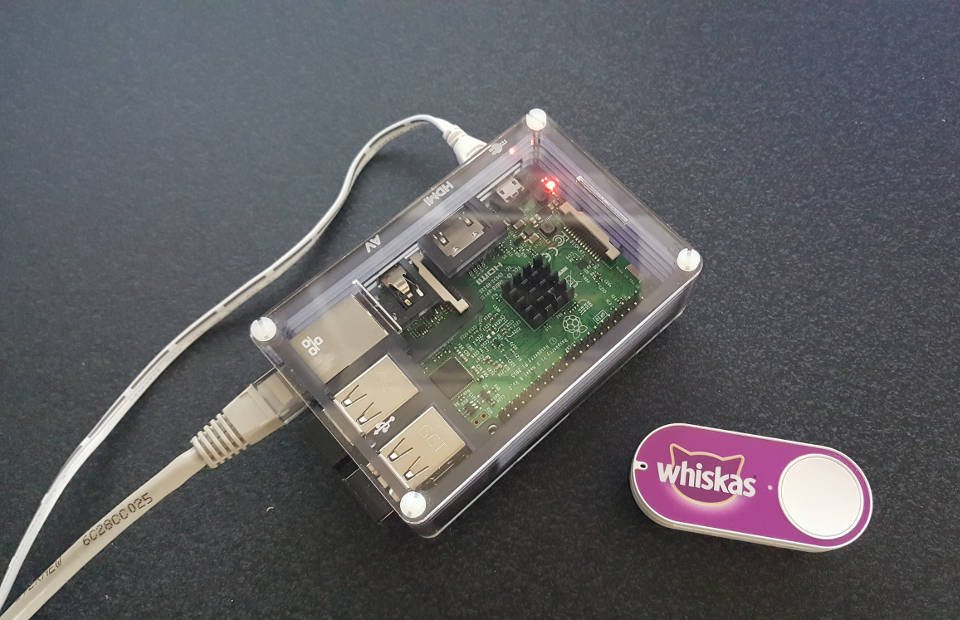
Red Mars Digital
Raspberry Pi
12 Jul 2017I'd heard all sorts of good things about the Raspberry Pi - the cheap, tiny computer packing a disproportionate punch in processing power.
Apart from being loads of fun and endlessly adaptable to use in all kinds of weird projects (such as a 3D scanner, a bicycle-mounted projector or a drum machine made from beetroots) , they have a great reputation as an educational tool for anyone looking to level up their coding skills, or master Linux and the command line.
After splashing out £55 on a (relatively speaking) top of the line Raspberry Pi 3 starter kit from Pimoroni.com, I can confirm that they are indeed both educational and a lot of fun.
I can't say I've built anything remotely close to a 3D scanner yet, but one small thing I have accomplished with my Pi that I genuinely use fairly often is the hacking of an Amazon dash button to control my Sonos system, instead of its intended application - in this case ordering a pallet of cat food.

The button is now discreetly mounted in my bedroom, in an easily reachable spot behind my headboard - and when it's pressed an ultra-relaxing playlist (things like Brian Eno's Apollo Atmospheres & Soundtracks, Yagya's Rhythm of Snow and Aphex Twin's Selected Ambient Works 2) plays on shuffle at a low volume for an hour through the bedroom speakers. This is the perfect quick fix if I'm trying to get to sleep and need something to help mask the sound of the noisy kids in the flat above!
This wasn't a tricky project, just combining two Node.js packages; Dasher and node-sonos-http-api. There are several good tutorials out there about this, and suprisingly it didn't take much more than some minor JSON tweaking to set up. Nevertheless, I'm happy with the results!
After spending some time experimenting with the Raspberry Pi, I also think it could be the perfect low-cost, low-impact solution for powering the 'Edutainment Console' project I'm currently developing for installation in a zoo / visitor centre. It may be cheap, but it's a machine with plenty of real-world uses.

Next post: Game on! (01 Dec 2017)
Previous post: Bootcamp (9 May 2017)